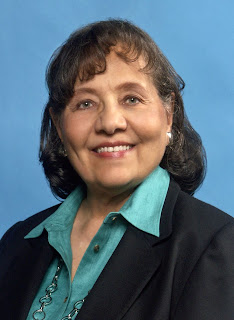Nash Spearheaded Nashville Sit-In Efforts in 1960, Contributed to 1963 March on Washington.
DELAWARE, OH – In 1960, 21-year-old Diane Nash and other Nashville residents quietly began to challenge the exclusionary racial policy of the city’s downtown lunch counters. February marks the 50th anniversary of their now-legendary sit-ins, which elevated the struggle for racial equality to a new level and set the stage for the civil rights crusade of the 1960s.
Nash will speak at 7:30 p.m. Feb. 4 in the Benes Rooms of Ohio Wesleyan University’s Hamilton-Williams Campus Center, 40 Rowland Ave., Delaware. Her presentation, “The Civil Rights Movement: A Fifty-Year Perspective,” will include time for audience questions, and is free and open to the public. Her presentation kicks off the university’s commemoration of Black History Month.
Nash has earned countless additional honors throughout her lifetime, including a “Distinguished American Award” from the John F. Kennedy Library in 2003. Her work also has been discussed in books including “Freedom Riders: 1961 and the Struggle for Racial Justice” by Raymond Arsenault and “Freedom’s Daughters: A Juneteenth Story” by Lynne Olson.
In addition, Nash has appeared on “The Oprah Winfrey Show,” NBC’s “TODAY,” and in Spike Lee’s film “Four Little Girls.” She also has appeared in the award-winning documentary “A Force More Powerful” and the PBS series “Eyes on the Prize,” a 14-hour television documentary chronicling the American civil rights movement.
Nash’s Ohio Wesleyan visit is co-sponsored by the Department of History, Office of Multicultural Student Affairs, Student Union on Black Awareness, Sagan Fellows Fund, and Joseph and Edith Vogel Lecture Fund.
Ohio Wesleyan’s Black History Month commemoration also will include a Poetry Slam hosted by the Office of Multicultural Student Affairs. The poetry slam, free and open to the public, will be held at 7 p.m. Feb. 25 in the Bishop Café on the lower level of Hamilton-Williams Campus Center, 40 Rowland Ave., Delaware.
Ohio Wesleyan University is an undergraduate liberal arts college that transforms the lives of its students through a combination of rigorous academics, mentoring relationships, and real-world experiences. Featured in the book “Colleges That Change Lives,” the private university’s 1,850 students come from 45 states and 39 countries.













No comments:
Post a Comment